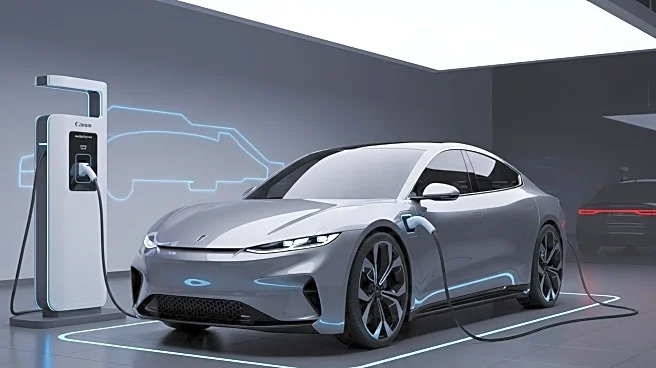What is the story about?
What's Happening?
General Motors is projected to maintain its position as the leading automaker in the U.S. for the third quarter, driven by a significant increase in electric vehicle sales. Analysts have noted that GM, along with Honda and Hyundai, has gained substantial momentum among electric vehicle buyers. This surge in interest is partly attributed to the impending expiration of the $7,500 federal tax credit for electric vehicles, which has spurred consumer demand. The third quarter has seen a robust performance in new-vehicle sales, bolstered by this heightened interest in electric vehicles.
Why It's Important?
The continued dominance of General Motors in the U.S. auto market underscores the growing importance of electric vehicles in the automotive industry. As consumer preferences shift towards more sustainable options, automakers like GM are positioned to benefit from increased sales and market share. The expiration of the federal tax credit could lead to a temporary spike in electric vehicle purchases, impacting sales figures and potentially influencing future policy decisions regarding incentives for electric vehicles. This trend highlights the evolving landscape of the auto industry, where traditional combustion engines are increasingly being supplemented by electric alternatives.
What's Next?
With the federal tax credit for electric vehicles set to expire, automakers may need to explore alternative strategies to maintain sales momentum. This could include introducing new models, enhancing vehicle features, or offering competitive pricing to attract consumers. Additionally, the industry may see increased lobbying efforts to extend or renew tax incentives to support the transition to electric vehicles. Stakeholders, including policymakers and environmental groups, are likely to engage in discussions about the future of such incentives and their role in promoting sustainable transportation.















